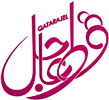Introduction
Across the Arab world, individuals have transformed their lives against incredible odds, turning adversity into opportunity through resilience, creativity, and determination. From war-torn regions to economic challenges, these stories of rebirth resonate deeply in a region where cultural values of community and perseverance thrive. A 2024 study by the Arab Barometer noted that 65% of Arabs believe personal effort can overcome systemic challenges, reflecting a widespread spirit of hope. This article shares five real-life stories of people in the Arab world who rebuilt their lives, offering inspiration and practical lessons. Optimized for search engines with keywords like “real-life stories Arab world 2025,” this 2000-word guide celebrates the region’s unsung heroes.
The Power of Resilience in Rebuilding Lives
Resilience—the ability to recover from setbacks—is a universal trait, but it shines brightly in the Arab world, where economic, social, and political challenges are common.
Why Resilience Matters
- Psychological Strength: A 2023 Journal of Psychology study found that resilient individuals recover from trauma 30% faster, maintaining mental clarity.
- Cultural Context: Arab values like family support and faith provide emotional anchors, as seen in communal practices across Jordan and Morocco.
- Economic Impact: Resilient entrepreneurs contribute to GDP, with SMEs driving 60% of employment in the region, per a 2024 OECD report.
Regional Relevance
The Arab world’s history of conflict, from Syria’s civil war to Yemen’s crisis, has forced many to rebuild. Yet, stories of triumph, like those below, highlight how individuals leverage local resources and cultural strengths to start anew.
Five Inspiring Stories from the Arab World
These stories showcase diverse individuals who overcame significant obstacles to rebuild their lives, rooted in the Arab world’s unique context.
Maha Al-Khalil: From Refugee to Social Entrepreneur
• Background: Maha, a Palestinian refugee born in Lebanon’s Shatila camp, faced poverty and limited opportunities. Denied citizenship, she lacked access to formal education beyond high school.
• Challenge: In her 20s, Maha struggled with unemployment and societal stigma, with 70% of Palestinian refugees in Lebanon living below the poverty line (2023 UNHCR data).
• Transformation: In 2015, Maha joined a women’s cooperative, learning to craft traditional Palestinian embroidery. She launched a social enterprise in 2018, selling handmade goods online via platforms like Etsy, employing 20 other refugee women.
• Impact: By 2025, her business generates $50,000 annually, funding education for her siblings. Maha’s story was featured in a 2024 Al Jazeera documentary, inspiring refugee communities.
• Lesson: Leverage cultural heritage and digital platforms to create sustainable income, even in restrictive environments.
Hussein Al-Sadiq: Overcoming Disability to Launch a Tech Startup
• Background: Hussein, from Baghdad, lost his leg in a 2014 bombing, facing physical and emotional trauma in a city recovering from conflict.
• Challenge: Unemployment among disabled Iraqis is 50% higher than the national average (2024 ILO report). Hussein struggled with depression and social isolation.
• Transformation: In 2017, he enrolled in a free coding bootcamp sponsored by Iraq’s Re:Coded initiative. Mastering web development, he launched a tech startup in 2020, creating accessible e-learning platforms for disabled students.
• Impact: His platform serves 10,000 users across Iraq and Jordan by 2025, earning $100,000 in revenue. Hussein advocates for disability inclusion, speaking at regional tech conferences.
• Lesson: Use accessible training programs to acquire in-demand skills, turning personal challenges into societal solutions.
Fatima Al-Zahrani: From Financial Hardship to Culinary Success
• Background: Fatima, a single mother in Jeddah, Saudi Arabia, faced financial ruin after her divorce in 2016, with no income to support her three children.
• Challenge: Limited job opportunities for women in her community and societal stigma made rebuilding difficult. Saudi women’s workforce participation was only 20% in 2016 (World Bank).
• Transformation: Fatima began cooking traditional Hejazi dishes at home, selling meals via WhatsApp groups. With a $5,000 loan from the Saudi Monsha’at program in 2018, she opened a small restaurant in 2020.
• Impact: By 2025, her restaurant employs 15 women and generates $80,000 annually. Fatima’s story was highlighted in a 2024 Saudi Gazette feature, inspiring female entrepreneurs.
• Lesson: Start with small, local solutions and leverage government support to scale businesses, especially for women in conservative settings.
Rami Qawasmi: Rebuilding Through Digital Innovation
• Background: Rami, a Jordanian entrepreneur, co-founded Mawdoo3, an Arabic online encyclopedia, but faced early failures with funding rejections and technical glitches in 2010.
• Challenge: The Arabic internet lacked quality content, and investors doubted the project’s viability, with only 10% of online content in Arabic at the time (2010 Internet World Stats).
• Transformation: Rami and his partner bootstrapped Mawdoo3, working nights to refine the platform. By 2018, it hosted 140,000 articles, attracting 60 million monthly visitors. In 2022, Rami pivoted to AI-driven content tools, securing $10 million in funding.
• Impact: Mawdoo3 is a leading Arabic knowledge platform in 2025, employing 200 people. Rami’s journey was profiled in a 2024 Forbes Middle East article.
• Lesson: Persist through initial failures and adapt to emerging technologies to meet regional needs.
Laila Al-Masri: From War-Torn Syria to Educational Advocate
• Background: Laila, a teacher from Aleppo, fled Syria’s civil war in 2013, arriving in Jordan’s Zaatari refugee camp with her two children.
• Challenge: Displacement disrupted her career, and 80% of Syrian refugees in Jordan faced unemployment in 2013 (UNHCR). Laila battled depression and financial instability.
• Transformation: In 2015, she volunteered with UNICEF, teaching literacy to refugee children. By 2018, she founded a community learning center, training 50 teachers and educating 1,000 students annually.
• Impact: Laila’s center, funded by international grants, operates in three Jordanian cities in 2025, earning her a 2024 UN Women award. Her story inspires refugee-led initiatives.
• Lesson: Use existing skills to address community needs, leveraging NGO support to rebuild and give back.
Common Themes and Lessons
These stories reveal universal and region-specific insights for rebuilding lives:
• Resilience Over Adversity: Each individual faced systemic barriers—poverty, disability, war—but persevered, aligning with the Arab value of sabr (patience).
• Community Support: Family, local cooperatives, and NGOs provided emotional and practical support, reflecting the region’s communal ethos.
• Leveraging Technology: Digital platforms like WhatsApp, Etsy, and coding bootcamps enabled scalability, critical in a region with 70% internet penetration (2024 Statista).
• Cultural Relevance: Incorporating traditions, like embroidery or Hejazi cuisine, strengthened businesses and resonated with local markets.
• Government and NGO Roles: Programs like Monsha’at and UNICEF offered funding and training, easing financial burdens.
These lessons encourage others to tap into local resources, embrace technology, and stay rooted in cultural identity.
Frequently Asked Questions (FAQs)
1. What motivates people in the Arab world to rebuild their lives?
Cultural values like family support, faith, and sabr, combined with personal ambition, drive resilience, as seen in stories like Maha’s and Laila’s.
2. How do digital tools help in rebuilding lives?
Platforms like WhatsApp and Etsy enable small-scale businesses, while coding bootcamps, as in Hussein’s case, teach high-demand skills.
3. What role do government programs play in these stories?
Initiatives like Saudi Arabia’s Monsha’at and Jordan’s NGO partnerships provide loans, training, and resources, as shown in Fatima’s and Laila’s journeys.
4. Can cultural heritage aid in rebuilding lives?
Yes, incorporating traditions like embroidery or cuisine, as Maha and Fatima did, creates marketable products and fosters community pride.
5. How can others apply these lessons?
Start small, seek community or government support, and use digital tools to scale, while staying resilient through setbacks.
Conclusion
The stories of Maha, Hussein, Fatima, Rami, and Laila illustrate the extraordinary resilience of individuals in the Arab world who rebuilt their lives from scratch. Facing challenges like poverty, disability, and war, they leveraged cultural strengths, digital tools, and regional support to create meaningful change. Their journeys, from refugee camps to tech startups, reflect the region’s spirit of hope and perseverance. In 2025, as the Arab world advances economically and socially, these stories inspire others to overcome obstacles, tap into local resources, and forge new paths. By embracing resilience, community, and innovation, anyone can rebuild their life, contributing to a brighter future for themselves and their communities.

